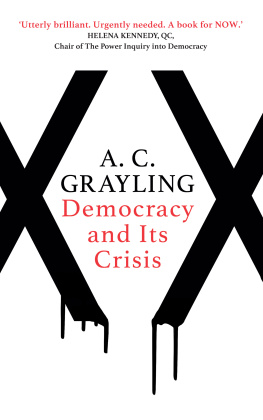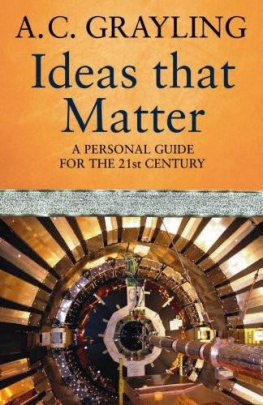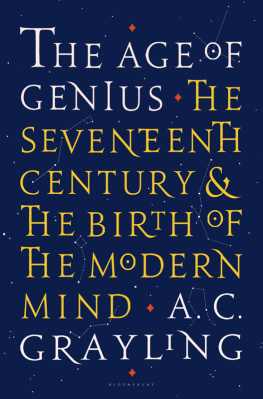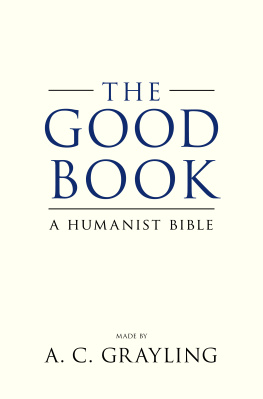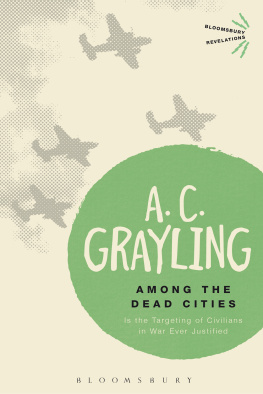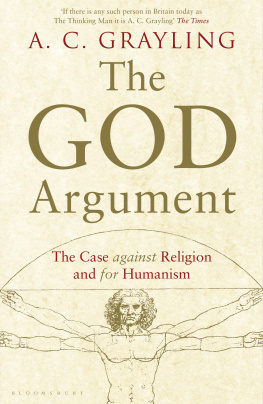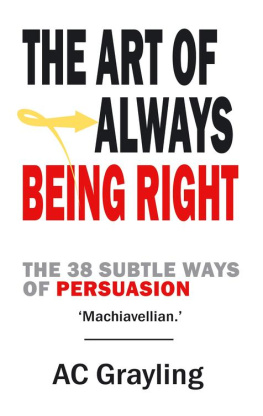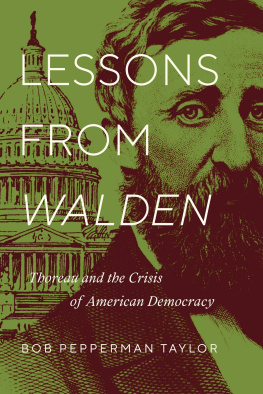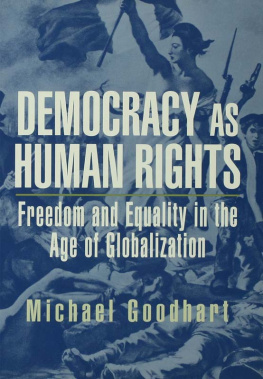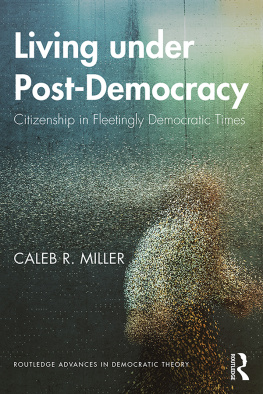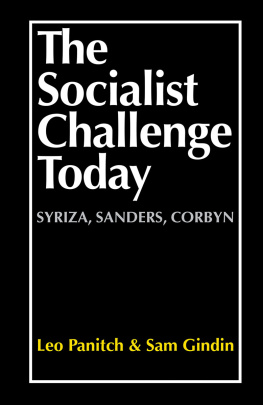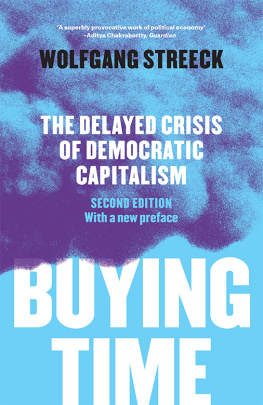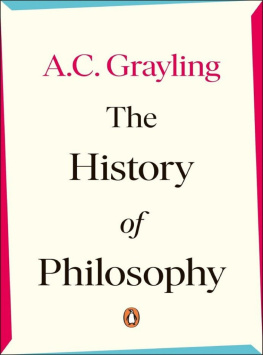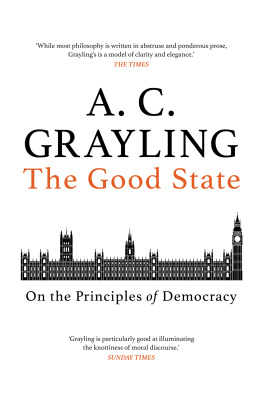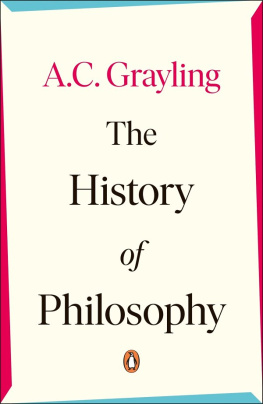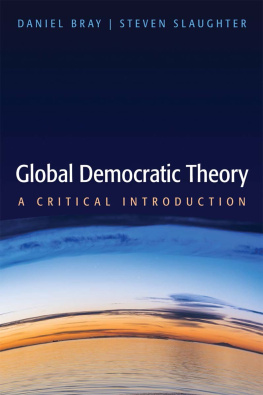Other books by the same author
ACADEMIC
An Introduction to Philosophical Logic
The Refutation of Scepticism
Berkeley: The Central Arguments
Wittgenstein
Russell
Philosophy 1: A Guide through the Subject (editor)
Philosophy 2: Further through the Subject (editor)
The Continuum Encyclopedia of British Philosophy (editor)
Truth, Meaning and Realism
Scepticism and the Possibility of Knowledge
GENERAL
The Long March to the Fourth of June (with Xu You Yu)
China: A Literary Companion (with Susan Whitfield)
The Future of Moral Values
The Quarrel of the Age: The Life and Times of William Hazlitt
Herrick: Lyrics of Love and Desire (editor)
What Is Good?
Descartes: The Life and Times of a Genius
Among the Dead Cities
Against All Gods
Towards the Light
The Choice of Hercules
Ideas that Matter
To Set Prometheus Free
Liberty in the Age of Terror
The Good Book
The God Argument
A Handbook of Humanism (editor, with Andrew Copson)
Friendship
The Age of Genius
War
ESSAY COLLECTIONS
The Meaning of Things
The Reason of Things
The Mystery of Things
The Heart of Things
The Form of Things
Thinking of Answers
The Challenge of Things
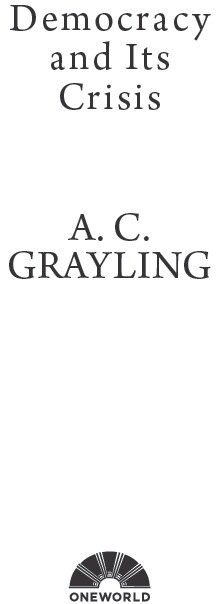
To Bill Swainson
philosophus, consuasor, amicus
Contents
Preface
This book is about the failure of the best political system we have: democracy. And it is about how to put it right.
Democracy has been given many meanings, and the word democratic has even been used to describe political systems that are anything but democratic, those typically known as The Peoples Democratic Republic of X. But one system of democracy representative democracy was painstakingly thought out and constructed with the aim of making democracy really work, and was applied in almost all of what we think of as the liberal democracies of the Western world. But in at least two of its leading examples in todays world, the United States and the United Kingdom, representative democracy has been made to fail. Notice these words: made to fail. I argue that if the ideas that underlie the concept of representative democracy were properly and transparently applied, democracy would truly be, as Winston Churchill claimed, the least bad of all systems. But it has been made to fail by a combination of causes, all of them deliberate.
In the pages that follow I explain how the idea of representative democracy emerged from a long debate about how to make democracy work (Part I), then discuss what has gone wrong with it in the US and the UK (Part II Chapters 7 and 8) and how to put it right (Part II Chapters 9 and 10). To get a really clear idea of what representative democracy is one must understand the process by which the idea of it emerged. If one does not understand the logic of it, one will not understand why it is as it is, and how those who are undermining it are managing to do so.
This is because representative democracy is a structure designed to base sound and stable government on the democratic consent or will of the people. Consent, will, the people, and the way that sound government is to be based on them, are the key contested concepts here, and it is only by understanding how they have been given meaning and effect that we can see what representative democracy is, and what is happening to it. That is why I begin with an account of how the idea of it emerged. (Those not interested in the history and theory of the matter can however go straight to Part II.)
An analogy which, if kept in mind throughout, makes the intention of representative democracy clear, is this: the Australian poet Peter Porter once said, speaking of literature, that the purpose of form is to prevent you from putting down on paper the first thing that comes into your head. Representative democracy is about the form of a political order as the vehicle for carrying democratically expressed preferences into good government for all.
In at least two major representative democracies, that vehicle has been seriously tampered with, and among the worst symptoms of this so far to appear are the phenomena of the Trump election in the US and Brexit in the UK.
A. C. Grayling
London, June 2017
Introduction
For many centuries the idea of democracy was regarded with revulsion and fear, and not just by ruling elites who saw it as against their interests. This prevented the mass of people from having any say in the government of their communities and their own lives. It took much time, ingenuity and careful thought to devise institutions and practices which would make the democratic expression of preferences translatable into government that worked.
For most of recorded history political power has been held by the few over the many. It is easy to imagine that in prehistoric conditions, in small bands of people, an instinctive democracy reigned; but it is equally easy to imagine that a strong individual, charismatic or physically powerful or both, exerted leadership rather as alpha individuals do in other animal species usually males, which suggests that physical strength had much to do with it. Physical strength is one form of power, but so also are wealth, tradition, mystique, taboo, religious attitudes, genealogy all in their own ways, and more potently still in combination, providing and justifying the rule of one or a few over the rest.
At different points in history this form of political structure has been challenged and, less frequently, replaced by the claim of the many to have more right than the few to hold political power, or in terms both more practical and accurate to be its source. In fifth century BCE Athens this claim took its fundamental form, which is democracy. The word itself originates in the ancient Greek demokratia , from demos the people, kratos rule: rule by the people. We would not now recognize Athenian democracy as a paradigm, for in effect it was the replacement of a smaller few by a larger few. The franchise was held by adult male citizens only, a minority in the city, excluding women, slaves and xenoi (non-citizens), groups which between them probably made up at least three-quarters of the citys adult population.
But Athenian democracy was enough to alarm some of its leading contemporary thinkers, notably Plato, who saw the danger in it: that it could too readily degenerate into what is called ochlocracy , that is, mob rule, driven in unruly fashion by emotion, self-interest, prejudice, anger, ignorance and thoughtlessness into rash, cruel, destructive and self-destructive action. The danger is even more apparent when one considers the power of demagoguery, of manipulation of crowd sentiment by fiery rabble-rousing speeches (or their later forms such as, for example, tendentious election advertising) which target those very things emotion and prejudice so inimical to producing sound government. This danger is in reality different from ochlocracy, for this is manipulation by a hidden oligarchy a group using the excuse or the fig-leaf of appeals to democratic licence to carry out their agenda.
The Platonic anxiety about democracy has resonated throughout history. The remark attributed to Winston Churchill as his second comment on democracy (the first being well known: that democracy is the worst form of Government except for all those other forms that have been tried from time to time) could be a summary of Platos own view: that the strongest argument against democracy is a few minutes conversation with any voter, the point being that it reveals the ignorance, self-interest, short-termism and prejudice typical of too many voters. The American satirist H. L. Mencken put the point more trenchantly: Democracy is a pathetic belief in the collective wisdom of individual ignorance.
Next page
